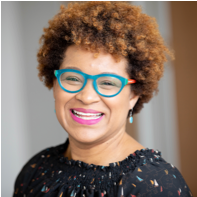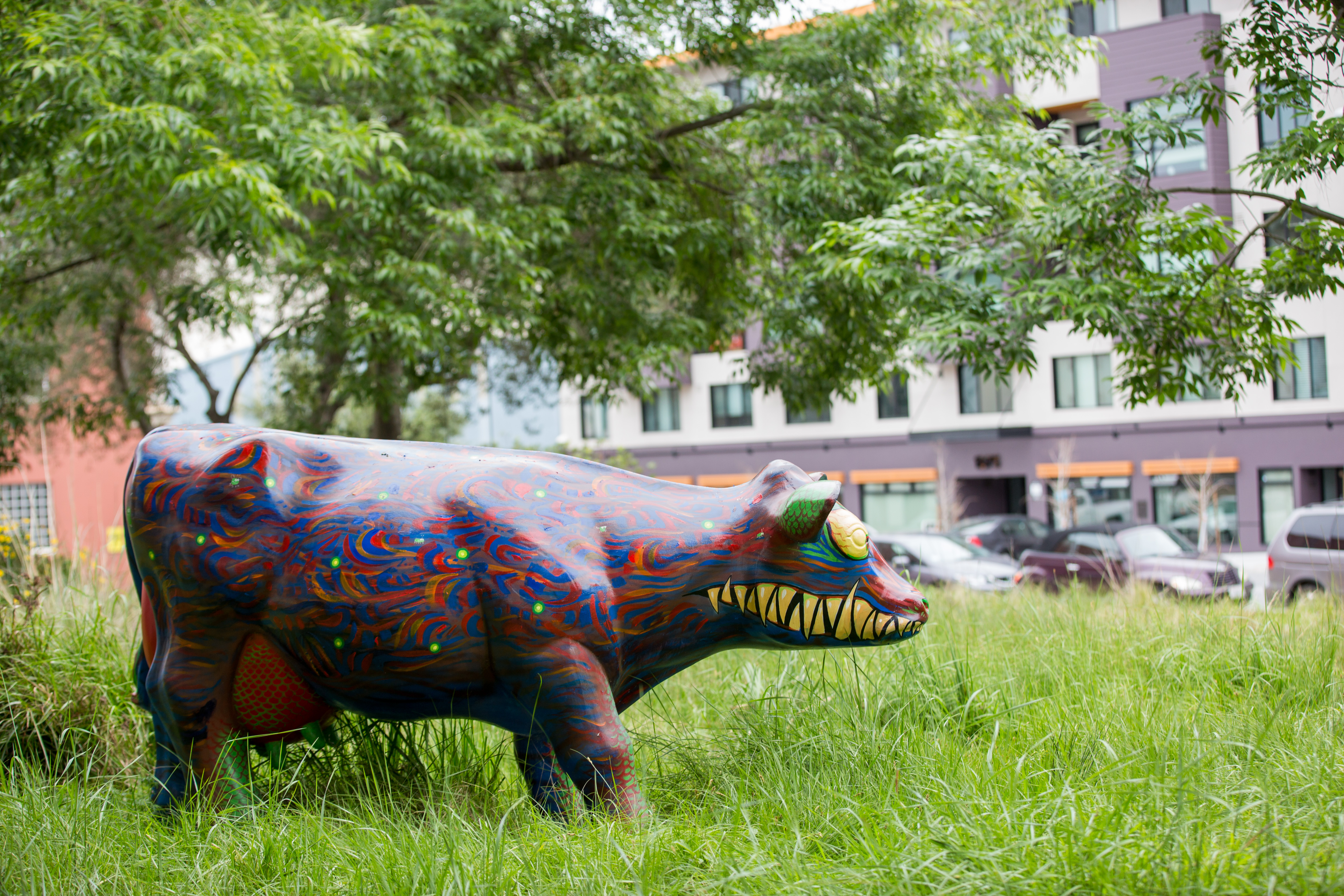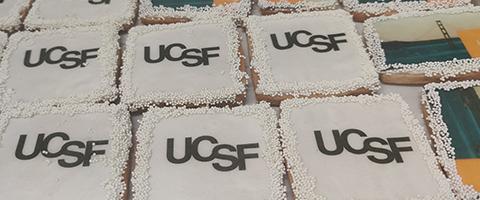A graduate of Saint Ignatius College Preparatory and Sonoma State University who went on to earn her MBA at Dominican University and a DEI certificate from UCSF, Leah Pimentel became the Department of Anesthesia and Perioperative Care’s first Director of DEI and Culture in January 2022.
 I’m a third-generation native of San Francisco’s Bayview district and I grew up in a healthcare world. My mother was a lead medical assistant at Kaiser. Sometimes I would go to work with her, so doctors and nurses were always a part of my life.
I’m a third-generation native of San Francisco’s Bayview district and I grew up in a healthcare world. My mother was a lead medical assistant at Kaiser. Sometimes I would go to work with her, so doctors and nurses were always a part of my life.
It’s so impactful to see what a hospital does and how much a part of your whole being those people can become. The people my mom worked with are still a part of our family. Growing up and seeing that, I knew it was something I wanted to do.
I went to St. Ignatius College Preparatory and did a thousand hours of community service, most of it volunteering with oncology patients at Kaiser. It was so moving, giving someone having a tough time an ear, a shoulder to lean on. It taught me the importance of compassion, hearing, relating, understanding and being supportive. To be an Ignatian to lead with not what I can do for myself, but what can I do for others.
Before I came to UCSF, I had my own consulting firm and was a chief customer success officer in technology for a while, but I wanted something more people-focused and more in the hospital area. I started as the assistant director of community relations at UCSF, working with the community, hearing their growing pains. Then this opportunity came about and…I thought ‘This is my job.’
As a native San Franciscan, I bring a unique perspective, because UCSF is part of San Francisco. And because of my life experience, I’m able to see things through a different lens, feel when a person is not okay, be in tune with it and bridge the gap to try to bring happiness to people. I want to be approachable and create a place where staff feels represented, even as I collaborate with faculty, staff, fellows and residents.
I also think it’s important to acknowledge my own privilege and power. I’m a homeowner in San Francisco, with a husband and a son and I try to use my privilege for good, doing things like buying recess equipment for my son’s school, to eliminate the financial burden being placed on other families. Power and privilege can be a positive if we give back to others. My son, Lawrence (11), organized ten of his friends to participate in the  Dogpatch Beautification Day Cleanup to encourage others to give back to the community. I want to reframe how we view power, privilege, and allyship. For example, why only be an ally to one group? There are a wide variety of unrepresented groups that need allyship. The important question is: How can I have the biggest impact?
Dogpatch Beautification Day Cleanup to encourage others to give back to the community. I want to reframe how we view power, privilege, and allyship. For example, why only be an ally to one group? There are a wide variety of unrepresented groups that need allyship. The important question is: How can I have the biggest impact?
I also believe DEI and culture can be fun. I tell this story of how I went to Tahoe on vacation and this little boy asked me why I had my hair a certain way. I didn’t take offense. He was just curious and that’s okay, even important. The point is that DEI concerns won't get fixed today, or even next year, but we’re on this journey together. We all see the world, this department, differently, but we’re pieces of a puzzle and if we concentrate on making a great puzzle together we can do amazing things.
Written by Andrew Schwartz.
